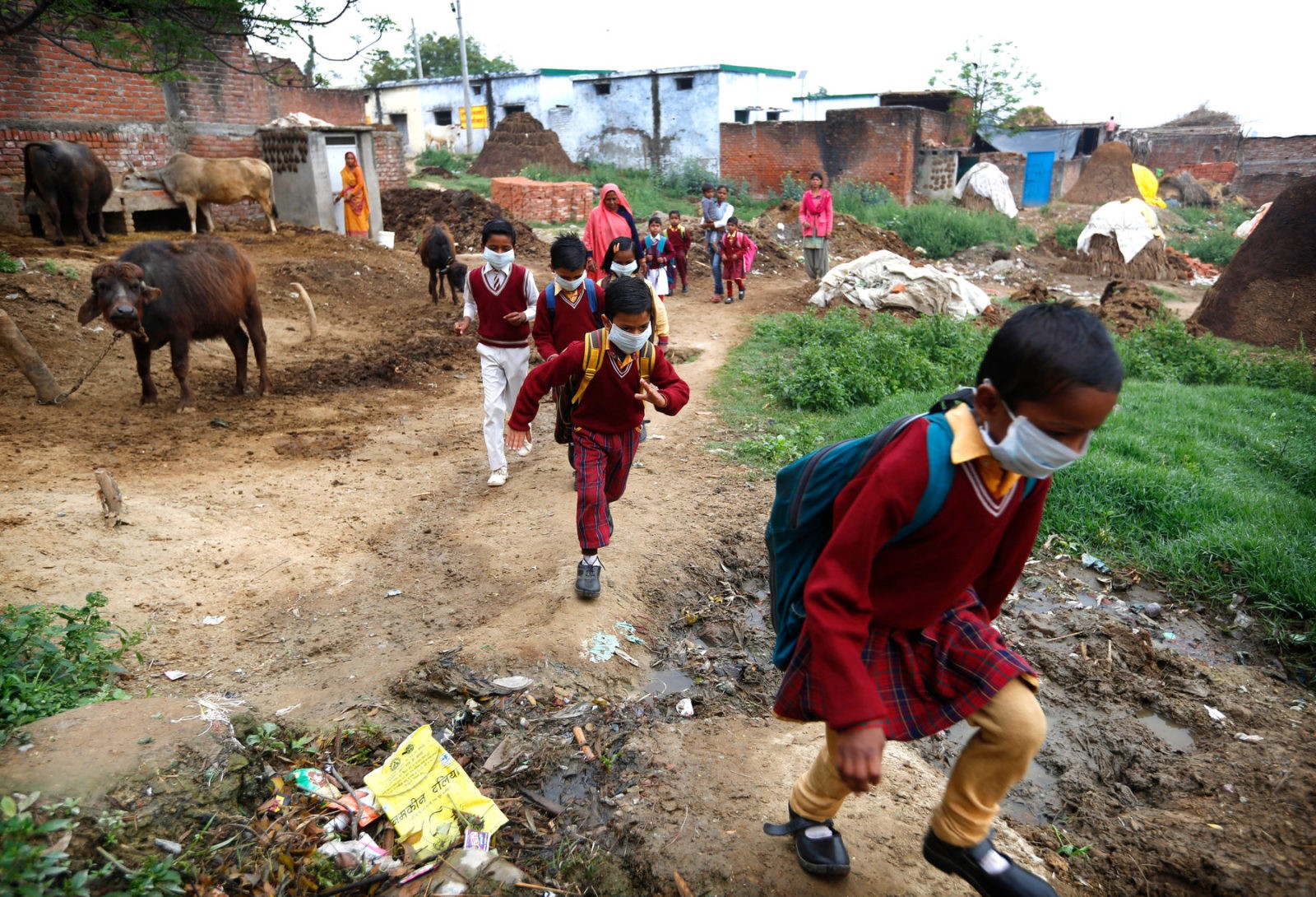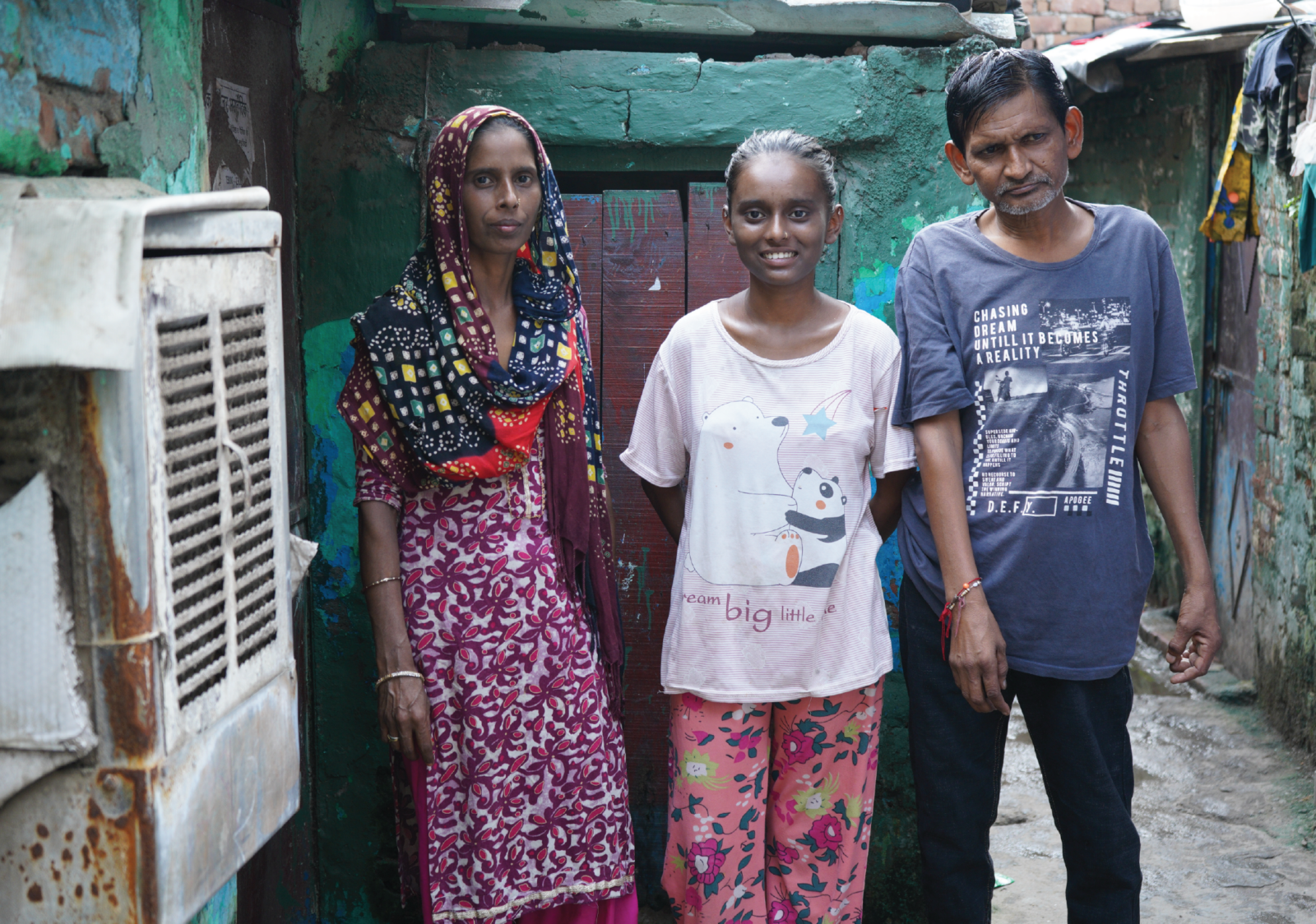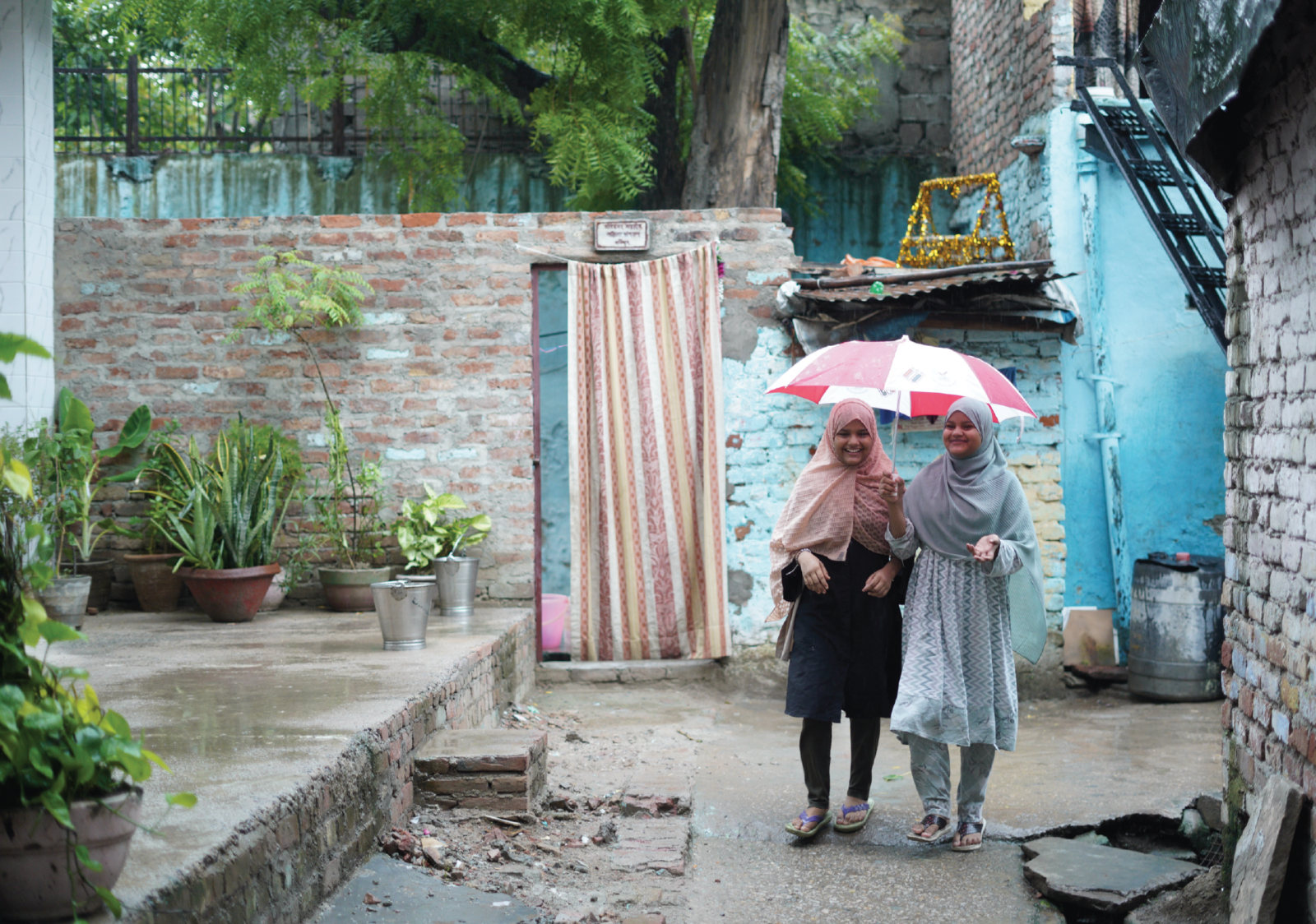Photo – Associated Press
As the phased opening up of schools and universities has begun, so have the conversations around children going back to school post lockdown. Education for children saw a dramatic change with the shutting down of schools in March 2020, moving schools and classrooms online, and giving rise to a digital divide like never before. Moreover, many children did not have proper access to learning, contributing to a growing learning gap. From the implementation of the New Economic Policy 2020, the allocation of the union budget towards education and the safety of children who prepare to go back to school are only some of the recent conversations that continue to draw attention. Here’s a few headlines from the last month, which highlight these conversations further.
Technology adoption in education may get special allocation
As the lockdown was implemented in the month of March and schools were shut down, there was a shift from offline schooling to online schooling. From top universities to government schools, everyone took the route of online schooling, but it had a huge drawback- the digital divide. India faced a digital divide in education as majority of the students had no resources or couldn’t afford online education. As many parts of India still facing internet connectivity issues, this is one of the issues to be addressed. The government is most likely to allocate a part of the Union Budget to address the digital divide in education and make online schooling available all over India.
Budget Explainer: How India Funds Public School Education
India needs to spend 6% of its gross domestic product (GDP) on education but in 2019-20, India spent only 3.1% of its GDP on education, the 2019-20 Economic Survey showed. Due to improper spending and allocation of budget towards education sector, the education outcomes too have been poor as majority of students study in government schools. As the government has allowed phased reopening of the schools, it is a very crucial time for the schools and the students as the New Education Policy 2020 will be implemented. The government will have to pay close attention to the budget allocation as well as the implementation of the same in order to at least sustain the level of education which India had in the pre-pandemic period. As the pandemic has forced families into poverty and decreased incomes, more students will be returning to government schools and so the budget allocation for education sector needs to be given special attention.
As the classes shifted to the online mode, majority of the children faced issues as they had no access to the resources needed for online education. According to the survey conducted by The Annual Status of Education Report (ASER 2020 Wave 1) in September 2020, it was clearly evident that the student belonging to the economically weaker sections of the society have fallen behind. As remote learning was the only way out during the lockdown, only the students from privileged background had access to online learning. The students from privileged background also had access to textbooks, private tutors, online classes and other resources provided by the private schools, but the students belonging to the underprivileged background had only access to WhatsApp and their school textbooks. This digital divide had further widened the learning disadvantage which was already prevailing in our education system and which needs to be spoken about.
Pandemic is an opportunity to reimagine schools as places for community learning
Usually, the government schools hit the headlines for all the wrong reasons like a part of a wall or roof falls off, children falling sick after eating mid-day meals, unclean drinking water issues or unhygienic restrooms. As the lockdown was implemented and schools were shut, the government have a fair chance to rebuild their schools and make it clean and safe for their students. Implementing innovative methods and making learning fun, taking help from NGOs and increasing the allocation of budget towards the education sector are some of the steps which the government should take. These changes along with the New Economic policy will be helpful for the students and will encourage the students to concentrate on their studies and help in bridging the gap between the pre-pandemic and post-pandemic period.
Private schools that educate 50% of Indian children are folding
As the pandemic forced the schools to shut down, many of the families had to migrate back to their native places or to new places in search of jobs. The children of these families too had to leave and now as the government has allowed phased reopening of schools, many of these children belonging to underprivileged background have no school to go to or can’t afford to go to. India’s education system was failing its students long before the pandemic hit and the implementation of lockdown worked as a catalyst in further plummeting the Indian education system.
Schools taking written consent of parents to send children to school from 1st February 2021
The written consent of the parents will be taken to send their children to the schools by the authorities. The government officials have visited majority of the schools to make sure that the school authorities are following the Covid-19 guidelines and make sure that everything is sanitized for the safety of the students returning back to school. Only one student will be seated on one bench keeping in mind the social distancing guidelines and also, it is necessary for all of them to wear masks and use sanitizers. The school premises too have been cleaned up and sanitized for everyone and has been supervised and checked by the government officials.
Karnataka: 2,000 rural private schools restart Classes 1 to 5
Nearly 2000 private schools have reopened for classes 1 to 5 in the month of January 2021. Earlier only Postgraduate courses and high schools were allowed to resume by the government but due to parental pressure, the private schools took this decision. As the schools were closed due to the pandemic in March 2020, the parents were tensed as the kids would forget the basic reading and writing skills that they learnt in school earlier. The online and phone schooling, though was a brilliant idea of keeping the children engaged with their studies, parents say that it wasn’t providing much help. Not reopening the schools for children is indirectly denying their right to education says an education expert, VP Niranjanaradhya.







